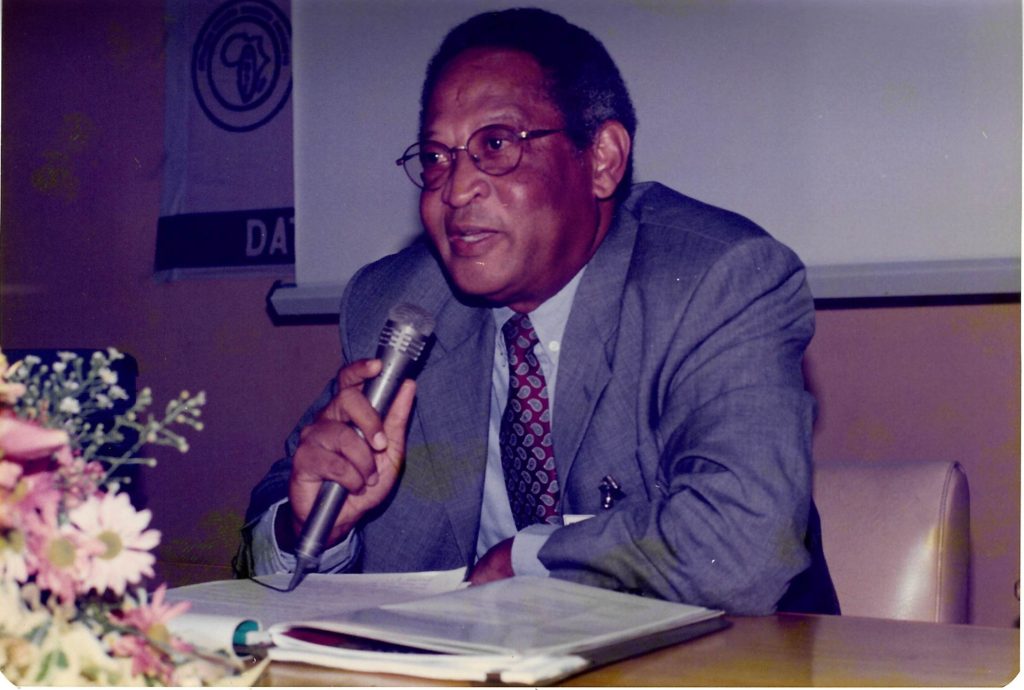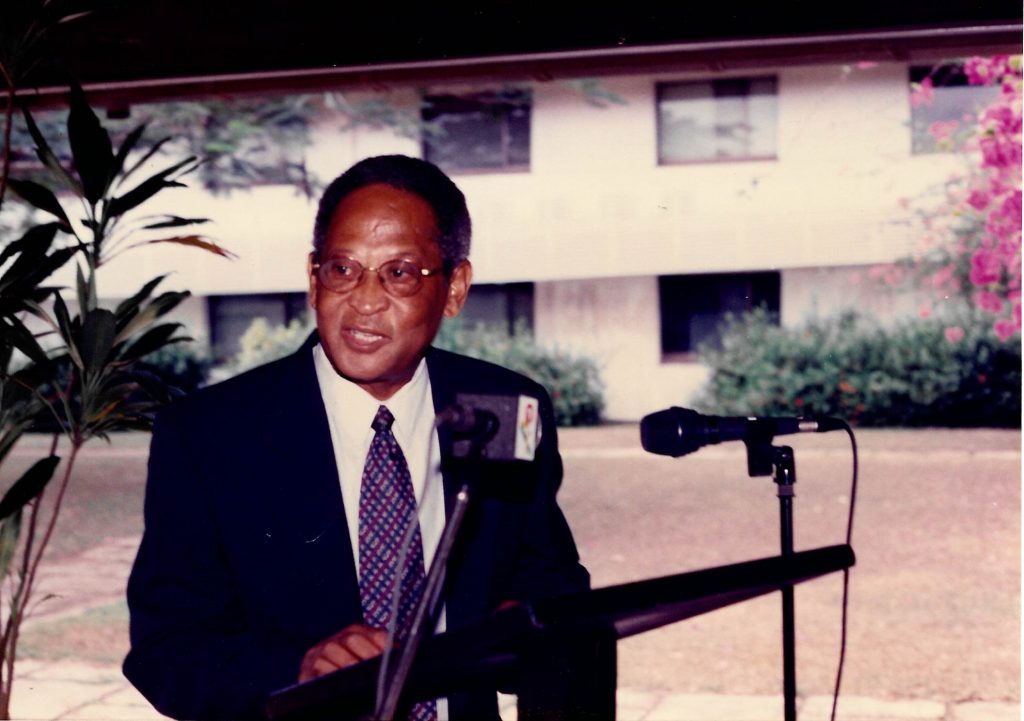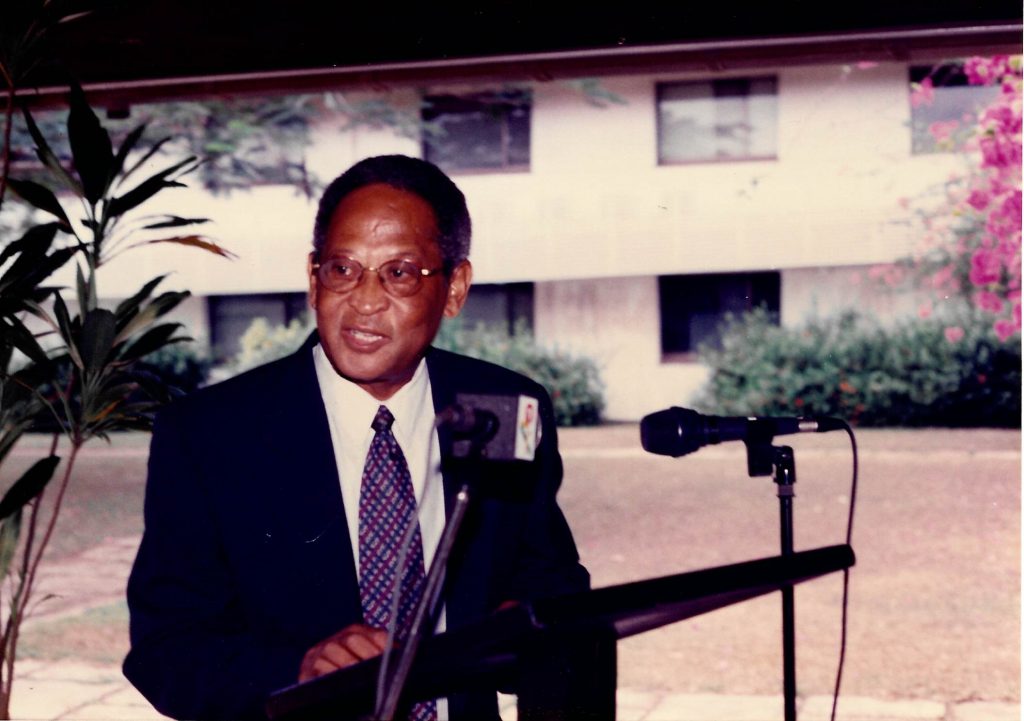Director, Noguchi Memorial Institute for Medical Research (1990 – 1998)
A LIFETIME OF INSPIRATION AND POSITIVE INFLUENCE
Word reached us of the passing of Emeritus Professor Francis Kwesi Nkrumah on the morning of Sunday, June 30 2024. The permeating reaction was a giant tree had fallen. To us, a legend in the annals of the Noguchi Memorial Institute for Medical Research was no more. We were aware of his last days of ill health, yet still, his passing was not expected.
In the late 1980s, when some stability was being established after the tumultuous years of the late 70s and the early ’80s, Prof. Akilagpa Sawyer, then Vice Chancellor of the University of Ghana managed to bring home Professor Francis Nkrumah from the University of Zimbabwe, where he was serving as chair of the Department of Child Health to head the Noguchi Memorial Institute for Medical Research (NMIMR). Prior to working in Zimbabwe, he had worked at the Department of Child Health, University of Ghana Medical School and was head of the Department of Child Health.

He took charge of the Institute when the promise and potential envisaged at its founding in 1979 was very bleak and in his characteristic manner, he went to work to establish the Institute as the premier biomedical research institute with dedication and perseverance. He encouraged young and qualified Ghanaians to join the staff to boost the calibre of research scientists as well as identify and support promising young talents for postgraduate training. He expanded the research portfolio of the Institute by establishing collaborations with external groups and actively encouraged younger scientists to seek external research funding for their work. His was not just pointing out available research grant opportunities but also actively worked with a potential grantee on the application from beginning to end to ensure that the application was strong. This was most obvious when he worked with some of us to apply for the first-ever Multilateral Initiative on Malaria (MIM) awards he oversaw grant preparations even on Sunday mornings. Why mornings? His justification was ‘The best time to be productive in Africa is in the mornings’. He will be there and on time to lead the development of the proposals. It was not surprising that the Institute won two of the initial 15 awards made in 1998. He established long-lasting collaborations with the University of Copenhagen, the US Naval Medical Research Center and several others. The culture of grant writing at the Institute, which is pervasive at NMIMR has its origins during the tenure of Professor Nkrumah as the Director .
Soft-spoken, and highly principled, he stood his ground refusing to budge from his stance that all research fellows in the Institute should be PhD holders despite the oft intoned response – ‘It’s against the statutes’.This was in the early 90s, at the time when MPhil holders were eligible to be senior members of the University. It was recently that the University changed to make a doctorate a prerequisite.

All this was in addition to maintaining the strong collaboration with the Japan International Cooperation Agency (JICA) and indeed increased the usual support to include a grant aid to expand the physical infrastructure of the Institute. That saw the establishment of the Conference facility, the Animal Experimentation building and the Biosafety Level 3 labs for work on HIV and TB. Indeed, those labs would later help to steer the country through the Ebola crisis as the Institute was confident of working on high-risk pathogens in a laboratory of assured safety.
His interest in the work of the Institute went beyond administrative oversight and included several field trips to observe and take part in the research. This included trips to Dodowa and Prampram (malaria); Navrongo (malaria); Asamankese (measles); Ho and Hohoe (research collaborations); Mampong Akuapem (research collaboration, malaria), Kumasi (sickle cell disease screening).
While strengthening the Institute, he maintained his primary interest in child health and Global Health. He served as the Chair of the Polio Eradication Committee both at home and internationally.

Emeritus Professor Francis Kwesi Nkrumah was very private and sought to do his work without seeking any favours or taking advantage of his famous lineage. He was a diligent man who was the epitome of punctuality. In all his dealings, he never introduced himself as the son of Ghana’s first President. It was always left to others to express their amazement when they recognized him beyond the duties of a caring paediatrician, an astute researcher and a competent administrator.
In his later years, he maintained a healthy working relationship with colleagues at the Institute and was ready and willing to help and guide younger ones as they took charge of the affairs of the Institute. His was to leave the current administrators and overseers to do their work without any interference. However, he will make sure that he finds a way to point out quietly and without offence anything that he finds amiss.
The Institute has lost a father figure and a giant who steered her back to the path of promise and importance that the founding fathers envisaged.
We extend our heartfelt condolences to the wife and family on the loss of such a great talent and pray that the Lord will comfort them at this time and grant Emeritus Professor Francis Nkrumah rest from his labours.

